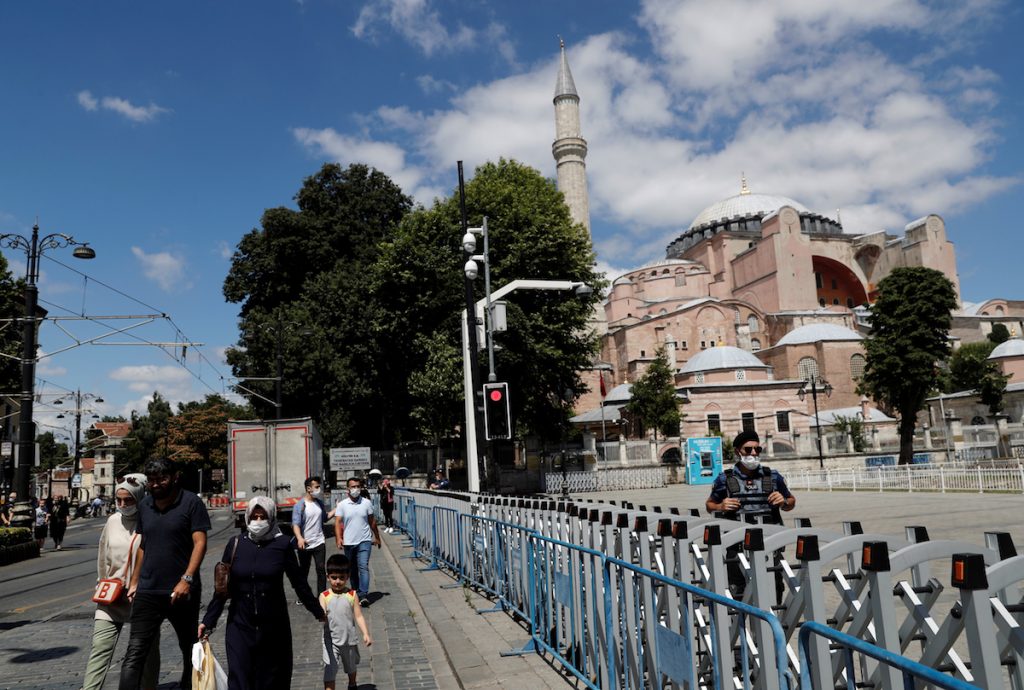Video source: Reuters
Pope Francis said he is “very saddened” by the decision of the Turkish government to turn the Hagia Sophia museum back into a mosque.
“I think of Hagia Sophia and I am very saddened,” said Pope Francis in comments after leading the traditional noontime Angelus prayer on July 12.
His brief comment met with applause from the small crowd gathered in St. Peter’s Square for the occasion.
News reports from Russia have earlier criticized Pope Francis for his “sad silence” on the decision of the government of Turkey.
Orthodox churches argued that the monument’s neutrality as a museum served as a point of unity between East and West.
The Russian Orthodox Patriarchate has been quoted in news report as saying that they regret that their concern and that of other Orthodox churches “has not been heard.”
After months of debate, Turkey’s State Court ruled on July 10, to revert Istanbul’s Hagia Sophia, one of the most iconic monuments for both Christianity and Islam, to a mosque.


Turkish President Recep Tayyip Erdogan announced that Muslim prayers in Hagia Sophia would begin on July 24.
In the past, he has repeatedly called for the stunning building to be renamed as a mosque and in 2018, he recited a verse from the Koran at Hagia Sophia.
The Vatican newspaper Osservatore Romano carried reactions from different countries about the decision.
Built under Byzantine Emperor Justinian, the 1,500-year-old structure for centuries was the heart of the Eastern Church, serving as the Byzantine empire’s main cathedral.
It was converted into a mosque following the capture of Constantinople, now called Istanbul, by the Ottomans in 1453.
It was included in the list of UNESCO World Heritage sites in 1985.
The structure was opened as a museum in 1935, a year after the decision by Turkey’s Council of Ministers was approved by the founder of modern Turkey, Mustafa Kemal Ataturk.
Since then, it has served as a symbol of both secularization as well as unity, being open to members of all faiths.
Last week, Pope Francis came under fire for omitting a portion of text in his Angelus appealing for religious freedom and human rights in Hong Kong.
He has yet to speak out about the issue.


